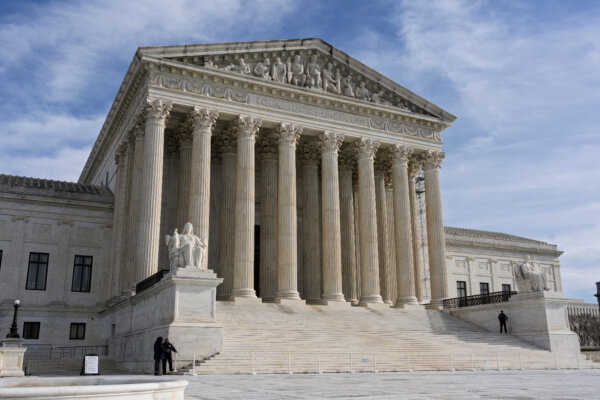![]() The Department of Justice (DOJ) on Wednesday indicated that it would move to quickly ask the U.S. Supreme Court to review the constitutionality of President Donald Trump’s executive order that seeks to terminate birthright citizenship.
The Department of Justice (DOJ) on Wednesday indicated that it would move to quickly ask the U.S. Supreme Court to review the constitutionality of President Donald Trump’s executive order that seeks to terminate birthright citizenship.
“In light of the Ninth Circuit’s decision, Defendants represent that the Solicitor General plans to seek certiorari expeditiously to enable the Supreme Court to settle the lawfulness of the Citizenship Order next Term, but he has not yet determined which case or combination of cases to take to the Court,” attorneys with the DOJ told U.S. District Judge John Coughenour.
In June, the Ninth U.S. Circuit Court of Appeals, based in San Francisco, ruled that Trump’s order seeking to limit birthright citizenship is unconstitutional, affirming a decision from Coughenour that had previously blocked its enforcement nationwide. The Supreme Court later ruled that in some cases, federal judges cannot issue nationwide injunctions. It didn’t rule on the merits of the Trump administration’s arguments relatin to banning birthright citizenship for illegal immigrants.
An appeal before the Supreme Court would allow the high court to review whether Trump’s order is permitted under the Constitution’s 14th Amendment.
Text of the order says that the 14th Amendment has “never been interpreted to extend citizenship universally to everyone born within the United States” and that the amendment has excluded the privilege for individuals born in the United States but who are not “subject to the jurisdiction thereof.”
DOJ attorneys have argued that the phrase “subject to United States jurisdiction” in the amendment means that citizenship isn’t automatically conferred to children based on their birth location alone.
Trump’s order asserts that a child born in the country is not a citizen if the mother does not have legal immigration status or is in the country legally but temporarily, and the father is not a U.S. citizen or lawful permanent resident. At least nine lawsuits challenging the order have been filed around the country. Meanwhile, Trump and lawyers for the DOJ have also said that the birthright citizenship clause, under the 14th Amendment, was designed to provide citizenship to people who were slaves or the children of slaves in the immediate aftermath of the Civil War, more than 160 years ago.











